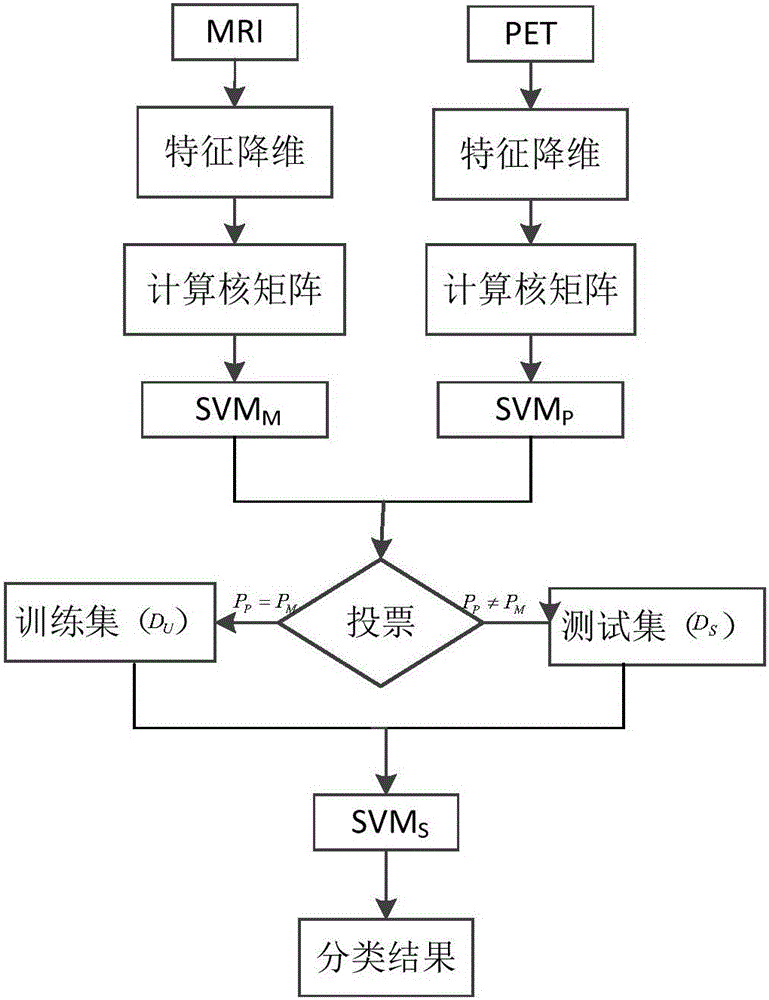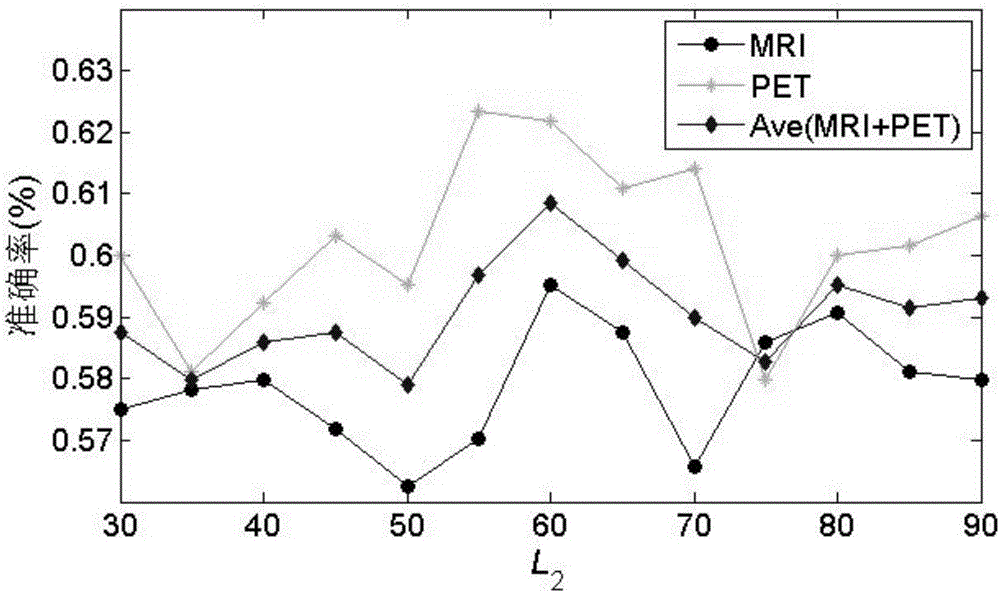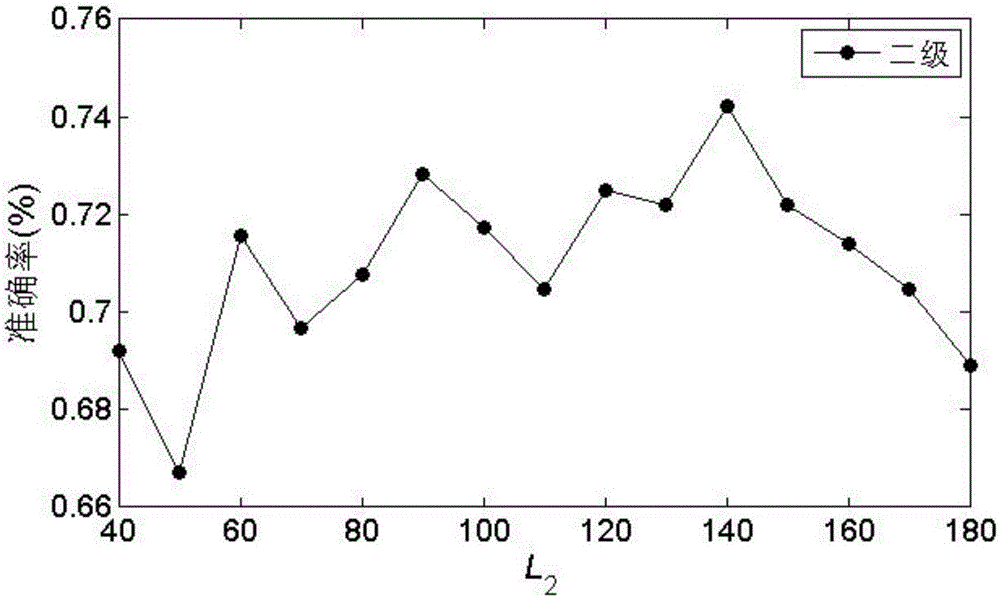Progressive type mild cognitive impairment identification method based on neuroimaging
A technology of cognitive dysfunction and identification method, which is applied in the field of computer information image processing, can solve problems such as insufficient samples, achieve high accuracy, high classification performance, and solve the effects of insufficient samples
- Summary
- Abstract
- Description
- Claims
- Application Information
AI Technical Summary
Problems solved by technology
Method used
Image
Examples
Embodiment 1
[0040] see figure 1 , a method for identifying progressive mild cognitive impairment based on neuroimaging in this embodiment is carried out according to the following specific steps:
[0041] Step 1. Image preprocessing:
[0042] Obtain basic information such as gender, age, MMSE (Mini Mental State Examination) score and CDR (Clinical Dementia Rating) score of the test sample from the ADNI database (Alzheimer's disease neuroimaging research database), and select the subjects in the study. The method of controlling variables is applied to make the MCI-C and MCI-NC samples as equal in age as possible, that is, the ages are both between 60-90 years old, and the approximate distribution is the same, for example, the MCI between 60-70 years old The number of samples for both C and MCI-NC is 15 to eliminate the influence of age factors. The MMSE score is above 24 and the CDR is 0.5. These two scores are one of the criteria for judging whether the test sample is MCI First, downloa...
PUM
 Login to View More
Login to View More Abstract
Description
Claims
Application Information
 Login to View More
Login to View More - R&D
- Intellectual Property
- Life Sciences
- Materials
- Tech Scout
- Unparalleled Data Quality
- Higher Quality Content
- 60% Fewer Hallucinations
Browse by: Latest US Patents, China's latest patents, Technical Efficacy Thesaurus, Application Domain, Technology Topic, Popular Technical Reports.
© 2025 PatSnap. All rights reserved.Legal|Privacy policy|Modern Slavery Act Transparency Statement|Sitemap|About US| Contact US: help@patsnap.com



